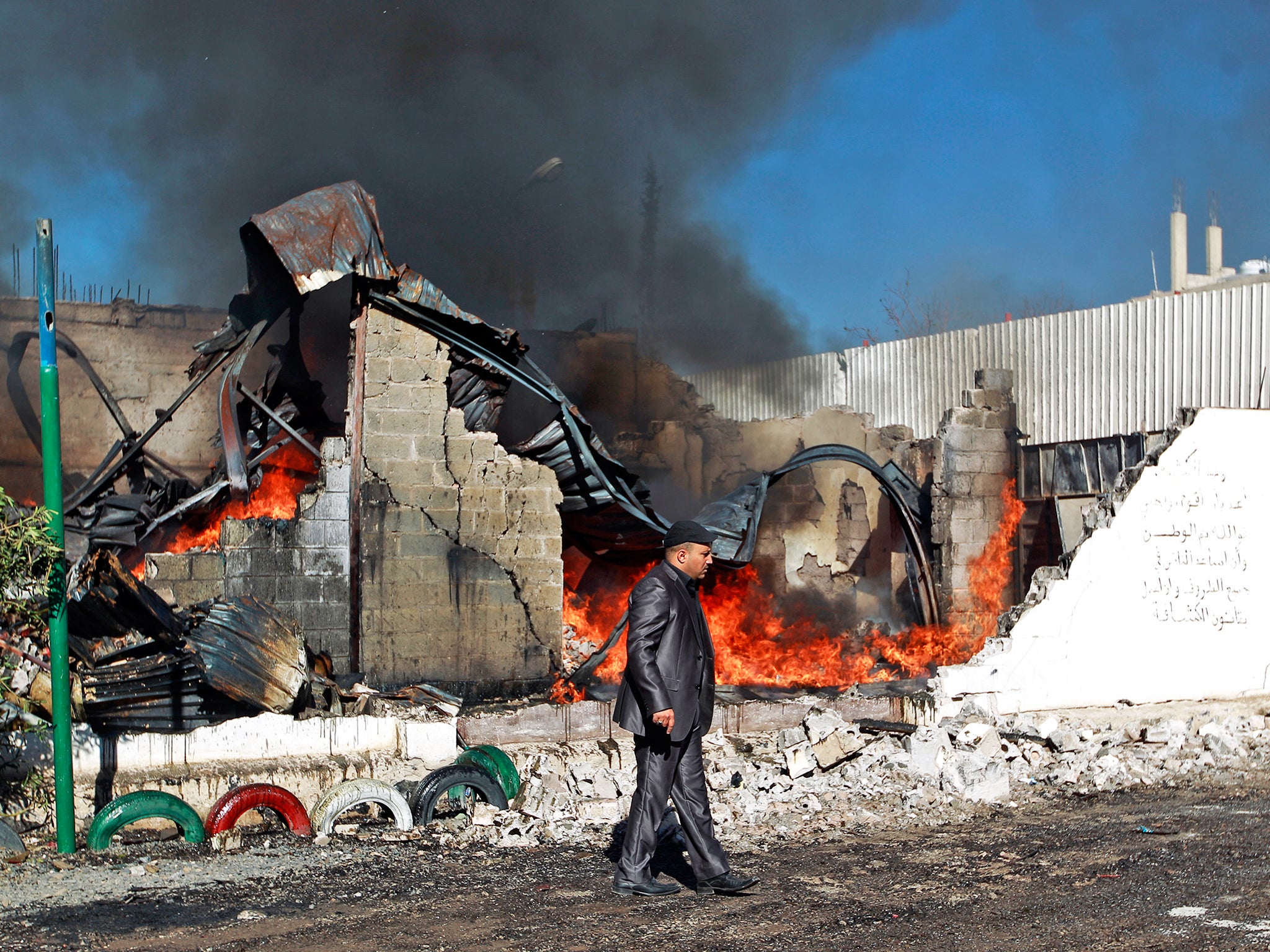The Government has finally admitted we're at war in Yemen – thanks to our relationship with Saudi Arabia
Saudi Arabia is not a reliable partner for the promotion of peace but an albatross around our necks


Your support helps us to tell the story
From reproductive rights to climate change to Big Tech, The Independent is on the ground when the story is developing. Whether it's investigating the financials of Elon Musk's pro-Trump PAC or producing our latest documentary, 'The A Word', which shines a light on the American women fighting for reproductive rights, we know how important it is to parse out the facts from the messaging.
At such a critical moment in US history, we need reporters on the ground. Your donation allows us to keep sending journalists to speak to both sides of the story.
The Independent is trusted by Americans across the entire political spectrum. And unlike many other quality news outlets, we choose not to lock Americans out of our reporting and analysis with paywalls. We believe quality journalism should be available to everyone, paid for by those who can afford it.
Your support makes all the difference.After repeated claims that Britain’s reloading of the Saudi Arabian Royal Air Force’s bomb bays does not mean Britain is at war with Yemen – where its ordnance are dropped – the Government has finally conceded that it is.
In a tense exchange with parliamentarians in a debate on the British sale of arms to Saudi Arabia, Alan Duncan, the government’s Special Envoy to Yemen, said: “We are in conflict for a reason”.
Duncan’s admission officially confirms of what every sensible person has known since March 2015, when Saudi Arabia intervened in Yemen’s civil war with an air campaign made possible by British planes and British bombs, and for which UK arms companies made £2.8bn in revenues in the first year alone.
To use the words of the UN envoy to Yemen, the “humanitarian catastrophe” precipitated by the Arab world’s richest country bombing its poorest has been almost total.
Yemen is a country on the brink of famine, a nation where 80 per cent of its people need humanitarian assistance. Unknown thousands have died, mostly civilians and mostly by UK-equipped Saudi planes. Human development has been put back decades.
But while NGOs and MPs in several parliamentary committees have been sharp in their criticism of the Government for continuing to fuel this war, the Government does nothing, meekly claiming over and over again there is no evidence of Saudi war crimes in Yemen and that Britain regularly “seeks assurances” from Saudi Arabia that it is not committing those crimes.
In March, the UK director of Human Rights Watch told the arms export control committee that he has personally handed evidence to the Foreign Secretary Philip Hammond, complete with GPS coordinates, of Saudi air strikes on civilian targets. This month Amnesty International sent photographs of British-made BL-755 cluster bombs partially exploded in recent months discovered in farmland near the village of al-Khadhra in northern Yemen.
In a letter sent to Defence Secretary Michael Fallon this week, Amnesty International accused the Government of “wildly implausible claims” to wriggle out of claiming responsible for UK-licenced cluster bombs killing Yemini civilians.
The Government is wriggling because, under Britain’s own arms export laws, it is illegal for it to sell arms to a state that is at a “clear risk” of committing international humanitarian crimes. Acknowledging the chorus of evidence of Saudi war crimes in Yemen would be tantamount to admitting Britain’s complicity in them.
The truth is that the arms trade of a handful of private arms companies with Saudi Arabia is simply off limits to our country’s democratic apparatus as well as its civil society.
This week, Saudi Arabia successfully strong-armed the UN to remove them from a child rights blacklist, which also contained all the other parties to Yemen’s civil war, reportedly threatening to pull its humanitarian aid to Yemen. (The Saudi Government claims that suggestion is “wildly exaggerated”.)
It is nothing short of obscene that Saudi Arabia could be using the human tragedy it has precipitated in Yemen as a bargaining chip to silence its critics.
No matter what the Government says, Saudi Arabia is not a reliable partner for the promotion of peace but an albatross around our necks making us complicit in the chaos and destruction is reaps across the Middle East.
Join our commenting forum
Join thought-provoking conversations, follow other Independent readers and see their replies
Comments